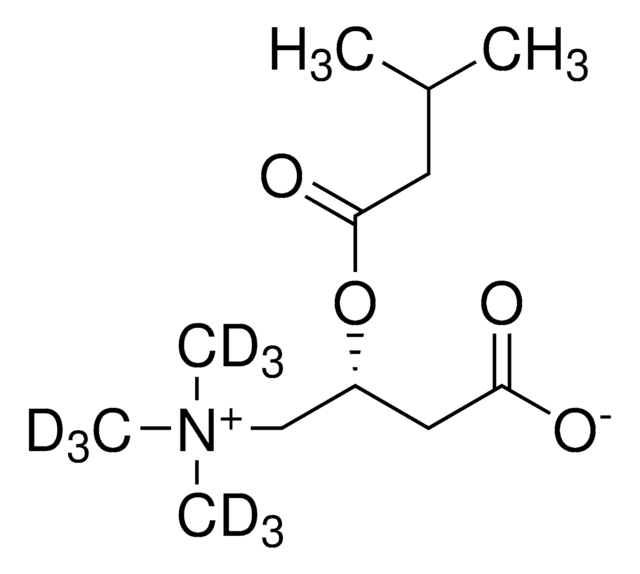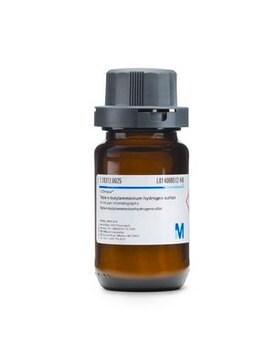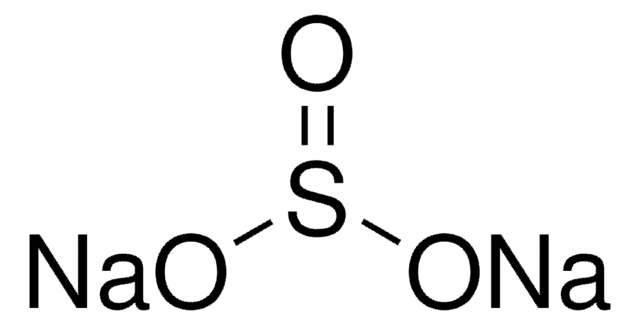791784
Tetrabutylammonium hydrogensulfate
anhydrous, free-flowing, Redi-Dri™, 97%
Synonym(s):
Tetrabutylammonium bisulfate
About This Item
Recommended Products
grade
anhydrous
Quality Level
product line
Redi-Dri™
Assay
97%
form
crystals
quality
free-flowing
mp
169-171 °C (lit.)
application(s)
PFAS testing
functional group
amine
SMILES string
OS([O-])(=O)=O.CCCC[N+](CCCC)(CCCC)CCCC
InChI
1S/C16H36N.H2O4S/c1-5-9-13-17(14-10-6-2,15-11-7-3)16-12-8-4;1-5(2,3)4/h5-16H2,1-4H3;(H2,1,2,3,4)/q+1;/p-1
InChI key
SHFJWMWCIHQNCP-UHFFFAOYSA-M
Looking for similar products? Visit Product Comparison Guide
General description
Application
Legal Information
Signal Word
Danger
Hazard Statements
Precautionary Statements
Hazard Classifications
Acute Tox. 4 Oral - Aquatic Chronic 3 - Eye Dam. 1 - Skin Corr. 1
Storage Class Code
8A - Combustible corrosive hazardous materials
WGK
WGK 2
Flash Point(F)
348.1 °F - closed cup
Flash Point(C)
175.6 °C - closed cup
Choose from one of the most recent versions:
Already Own This Product?
Find documentation for the products that you have recently purchased in the Document Library.
Customers Also Viewed
Articles
Redi-Dri™ prevents hygroscopic powders, such as inorganic salts, from absorbing moisture and forming clumps, leaving the salts free-flowing every time.
Our team of scientists has experience in all areas of research including Life Science, Material Science, Chemical Synthesis, Chromatography, Analytical and many others.
Contact Technical Service












